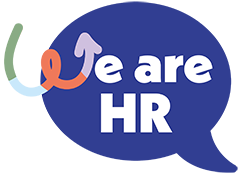Table Of Contents
Staying updated on employment law is essential for both employees and employers. Employment law ensures fair practices, promotes equality, and governs how businesses treat their workforce. The year 2024 brings new changes to employment legislation, reflecting societal shifts, technological advancements, and the evolving workplace environment.
In this article, we will explore the key updates in employment law for 2024, focussing on the purpose of these laws, what they cover, and how these changes will impact employees and employers alike.
What Is Employment Law?
Employment law refers to the body of laws and regulations that oversee the relationship between employers and employees. These laws are designed to ensure fair treatment, prevent discrimination, promote safety, and create equitable working conditions. Employment law encompasses various topics, including employee contracts, wages, hours, benefits, workplace safety, and anti-discrimination policies.
Why Does Employment Law Exist?
Employment laws exist to create a balance between the needs of businesses and the rights of workers. By establishing clear guidelines, employment law protects employees from exploitation and ensures employers follow fair and ethical practices. These laws cover important areas such as:
- Fair wages
- Equal treatment and non-discrimination
- Safe and healthy work environments
- Rights to leave and time off
- Protection against wrongful termination or unfair dismissal
For employers, these laws help in creating structured procedures that can prevent legal disputes and promote a healthy workplace culture.
Key Employment Law Updates for 2024
In 2024, there are several significant updates to employment laws aimed at strengthening employee rights and ensuring compliance with modern workplace dynamics. These changes affect various aspects of work, from hiring practices to remote work policies. Let’s take a closer look at some of the most important updates:
1. Remote Work Regulations
The shift to remote work, accelerated by the COVID-19 pandemic, has now become a permanent feature of the modern workplace. In 2024, many countries have introduced new regulations governing remote work, including the right to request remote work and clear guidelines around home-office safety standards.
Employers are now required to:
- Provide adequate equipment for remote workers to maintain productivity.
- Ensure compliance with health and safety standards, even for employees working from home.
- Grant employees the legal right to request remote work under certain circumstances, especially for parents or individuals with caregiving responsibilities.
2. Workplace Harassment and Bullying Prevention
The importance of creating a safe and respectful workplace has led to stricter regulations around workplace harassment and bullying in 2024. Many jurisdictions now require employers to have clear anti-harassment policies in place, provide mandatory training for staff, and offer transparent reporting mechanisms.
Key updates include:
- An expansion of the definition of harassment to cover a broader range of behaviours, including online harassment in remote work settings.
- Enhanced protection for whistleblowers who report harassment or bullying.
- Legal obligation for companies to investigate claims and take immediate action.
3. Pay Transparency and Equal Pay Initiatives
Pay transparency continues to be a hot topic in employment law, with 2024 introducing further initiatives to bridge the gender pay gap and promote fair compensation. New laws now mandate that companies disclose salary ranges in job postings and provide employees with clear information about pay structures.
These initiatives are aimed at:
- Reducing wage disparities across gender, race, and other protected characteristics.
- Empowering employees to negotiate fair wages based on transparent data.
- Encouraging companies to conduct regular pay audits to ensure compliance with equal pay regulations.
4. Enhanced Parental and Family Leave Rights
In 2024, family-friendly policies are receiving more attention, with expanded parental leave rights being introduced in many countries. These updates include extended maternity and paternity leave, as well as more flexible leave options for carers.
Highlights of the new parental leave regulations include:
- Equalised maternity and paternity leave, giving both parents the opportunity to take paid time off after the birth or adoption of a child.
- More flexible leave policies for employees caring for elderly or sick family members.
- Increased legal protections for employees who take family-related leave, ensuring they are not penalised or discriminated against when returning to work.
5. Increased Focus on Mental Health and Wellbeing
Mental health has become a central focus in workplace legislation for 2024. New laws now require employers to prioritize employee wellbeing by offering mental health support and fostering a healthier work-life balance.
Key provisions include:
- Mandatory mental health awareness training for managers and supervisors.
- The requirement for businesses to provide access to counselling services or Employee Assistance Programs (EAPs).
- Greater emphasis on reducing burnout by implementing flexible working hours and encouraging time off for mental health reasons.
6. Sustainable Workplaces and Green Policies
In line with growing global environmental concerns, 2024 also sees the introduction of workplace sustainability initiatives. Many companies are now required to adopt “green” workplace policies, reducing their environmental impact. This includes making offices more energy-efficient, minimising waste, and offering incentives for employees to use sustainable modes of transport, such as cycling or public transport.
Understanding the Scope of Employment Law
Employment law covers a wide range of topics, including:
- Employment Contracts: Ensuring employees are provided with clear terms and conditions of their employment.
- Health and Safety: Regulations that protect workers from unsafe working conditions, whether in the office, on-site, or while working remotely.
- Working Hours and Overtime: Establishing maximum working hours, minimum rest periods, and overtime compensation.
- Minimum Wage: Ensuring that employees are paid at least the minimum wage set by law.
- Equal Pay: Laws preventing wage discrimination based on gender, race, or other factors.
- Discrimination Protections: Laws ensuring employees are treated fairly regardless of race, gender, religion, or sexual orientation.
- Family Rights: Regulations covering maternity, paternity, and parental leave.
- Employee Dismissal: Protection against unfair dismissal and guidelines for proper employee termination.
FAQs on Employment Law in 2024
Q. What rights do remote workers have in 2024?
Remote workers have the right to request remote work, receive proper equipment from their employers, and expect health and safety standards to be maintained even in home-office settings.
Q. What is the 2024 national minimum wage?
While the specific rates vary by country, many regions have raised their minimum wage to account for inflation and living costs. Be sure to check the specific minimum wage laws applicable in your area.
Q. How has parental leave changed in 2024?
Parental leave in 2024 is more inclusive, with equal rights for both parents, extended leave options, and stronger protections for carers.
Conclusion
The 2024 updates to employment law reflect an ongoing commitment to creating fairer, safer, and more equitable workplaces. Both employees and employers must stay informed about these changes to ensure compliance and foster positive working relationships. By understanding the scope of employment law, businesses can avoid legal pitfalls, and employees can confidently exercise their rights.


